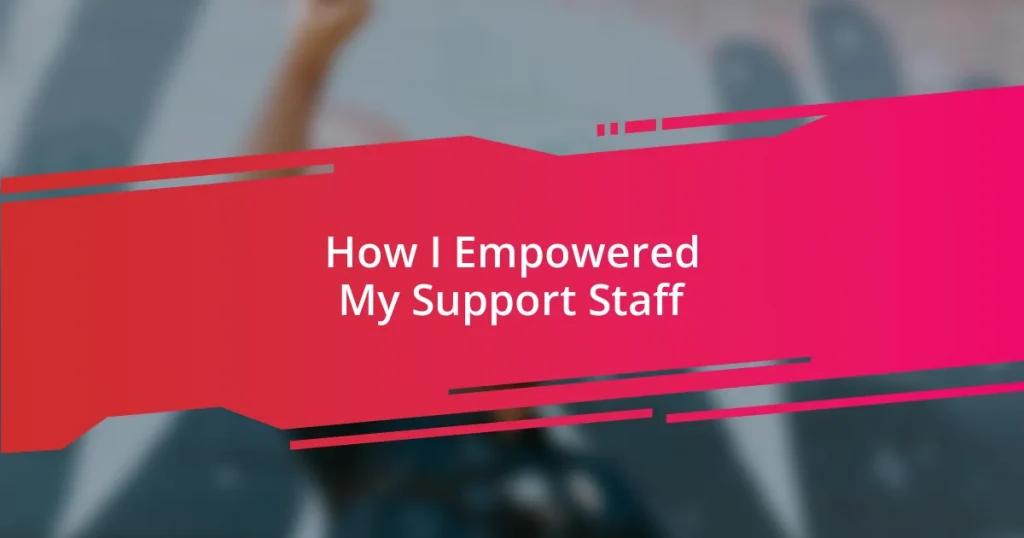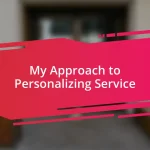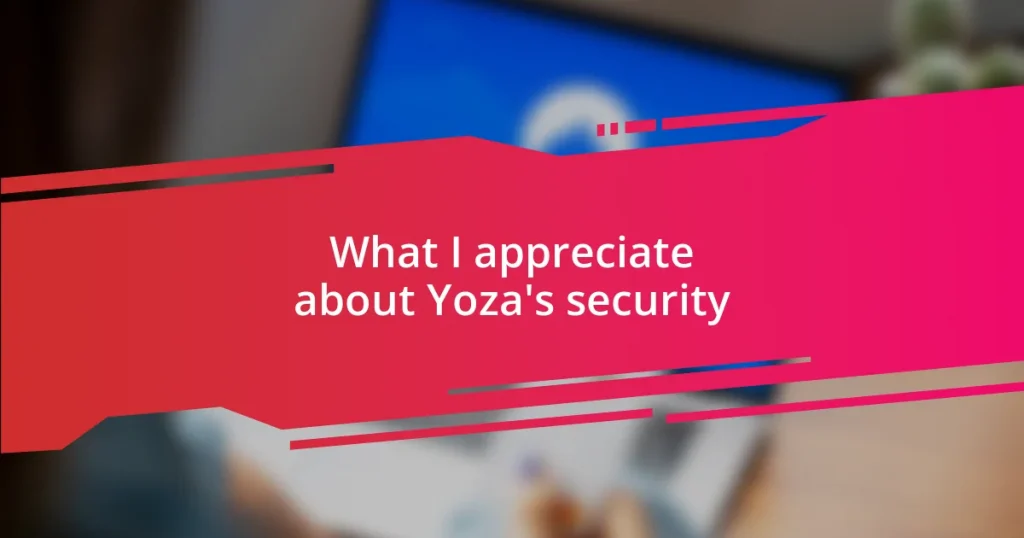Key takeaways:
- Regularly checking in on support staff’s emotional and professional well-being fosters trust and open communication, allowing for honest discussions about workload and stress.
- Providing tailored training and development opportunities boosts morale and addresses individual career aspirations, creating a culture of continuous improvement.
- Implementing recognition practices and team-building activities strengthens relationships, enhances motivation, and creates a positive work environment.
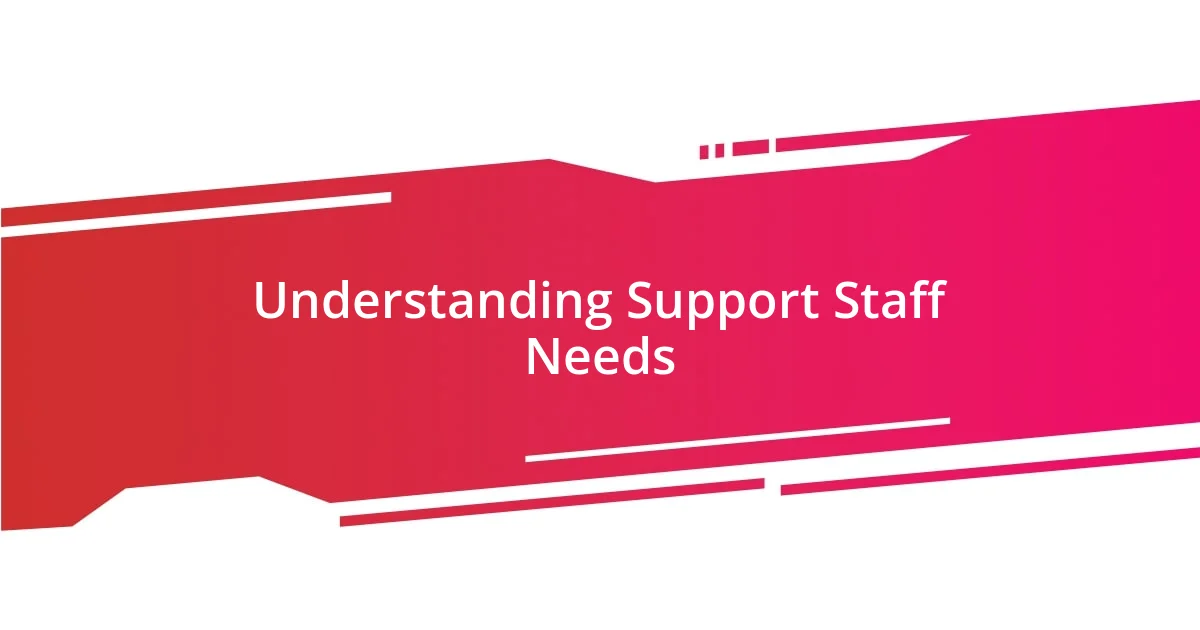
Understanding Support Staff Needs
Understanding the needs of support staff is essential for creating an environment where they can thrive. I remember a time when one of my team members expressed feeling overwhelmed with her workload. Listening to her not only helped me understand the pressure she was under but also highlighted the importance of regularly checking in on my staff’s emotional and professional well-being.
I’ve learned that affirming support staff needs often involves recognizing the subtle signs of stress and dissatisfaction. One day, I noticed a usually enthusiastic colleague had become quieter during meetings. Engaging in a one-on-one conversation revealed that she felt undervalued for her contributions. This experience made me realize how crucial it is to create open lines of communication—don’t we all want to be heard and appreciated?
Moreover, I’ve come to understand that training opportunities can significantly impact support staff morale. I recall when I invited my team to share what skills they wanted to develop; the excitement in the room was palpable. It reinforced for me the idea that when staff recognize their growth potential, it fosters a sense of purpose and belonging within the organization. Isn’t that something every leader should strive for?
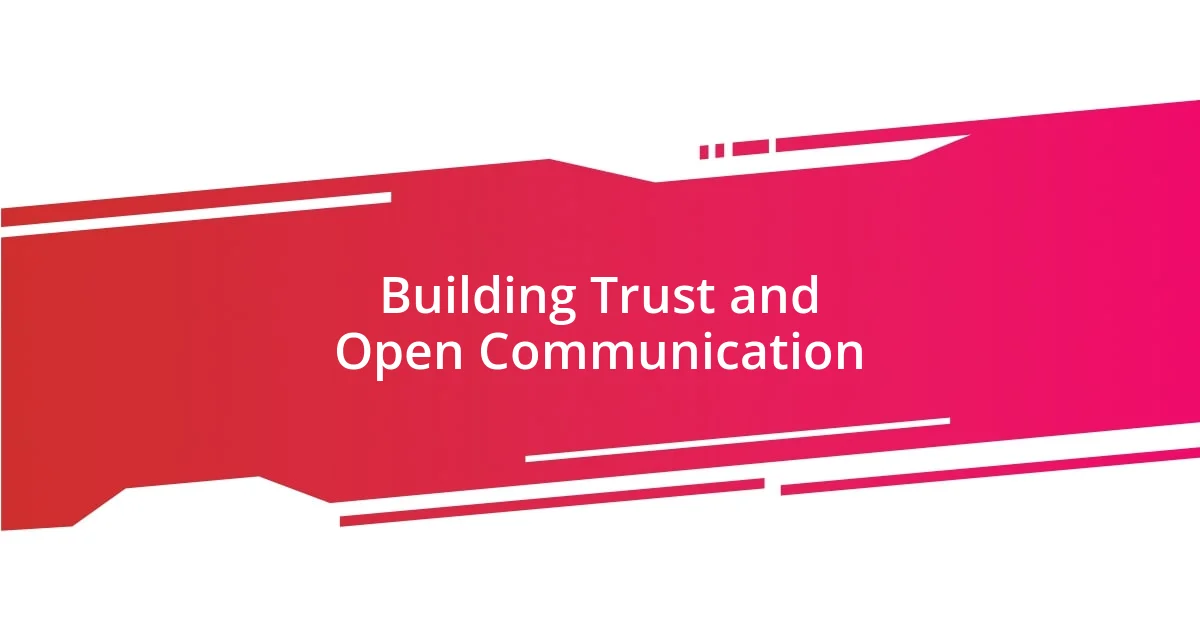
Building Trust and Open Communication
Building trust is foundational to open communication. I’ve found that this trust often starts with simple gestures. For instance, I made it a point to share my own struggles during team meetings. When I opened up about a challenging project, I noticed my support staff felt more comfortable sharing their hurdles, too. It was like a weight lifted off the conversation, and we found common ground. Trust isn’t built overnight, but I’ve seen it flourish when leaders show vulnerability.
To cultivate this environment further, I focused on the following strategies:
- Regular Check-ins: I established weekly one-on-ones, creating a safe space for candid discussions.
- Transparent Decision-Making: By explaining the ‘why’ behind decisions, I fostered a sense of inclusion.
- Active Listening: I made it a habit to listen without interrupting during team discussions.
- Feedback Culture: Encouraging feedback, both positive and constructive, became routine.
Fostering trust and communication can transform the dynamics of a team. Each time I saw a breakthrough in conversations, I felt reaffirmed that this approach was indeed the right direction.
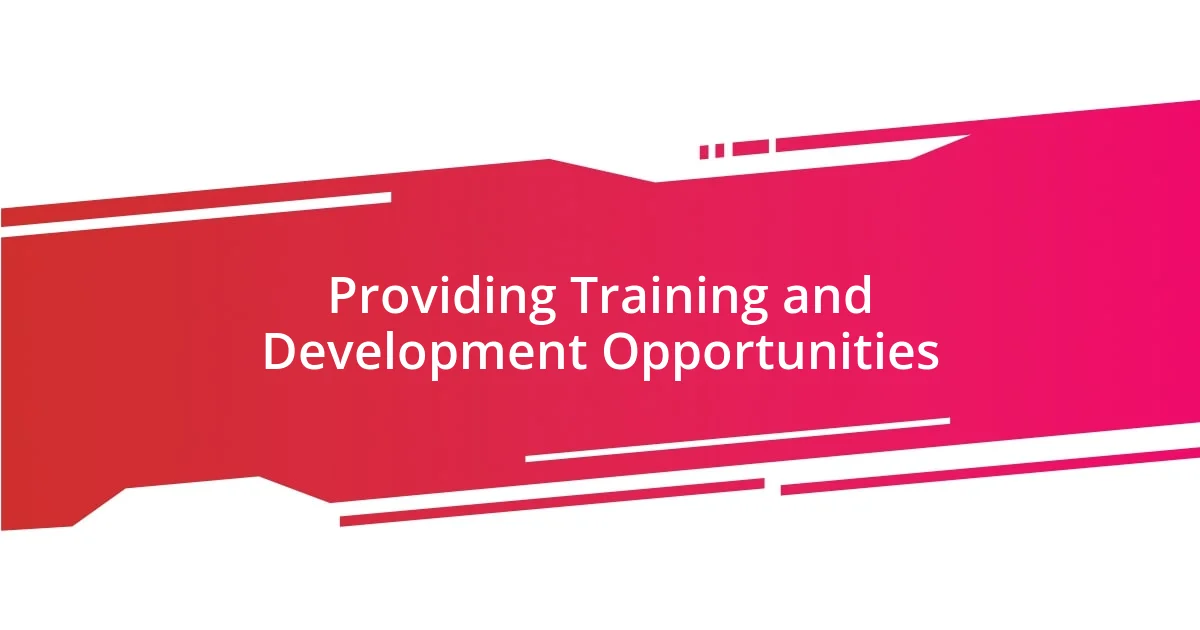
Providing Training and Development Opportunities
Providing training and development opportunities is a game changer for support staff empowerment. I distinctly remember a time when I organized a workshop on advanced software they were all using. The enthusiasm was electric, and the level of engagement far exceeded my expectations. Witnessing my team learn new skills right before my eyes filled me with joy and made me realize how powerful investing in development can be. Not only did their confidence skyrocket, but it also cultivated a culture of continuous improvement within our team.
I’ve found that offering tailored training helps address individual career aspirations. After a quick conversation with one of my staff members, I discovered her passion for project management. I arranged for her to attend a professional certification course. The pride on her face when she completed it was unforgettable, and it translated into her taking on new responsibilities with eagerness. That’s one of the beautiful things about development opportunities; they don’t just aid in professional growth but also fuel personal aspirations and job satisfaction, which creates a win-win situation for everyone.
Lastly, I’ve seen how creating a mentorship program can amplify learning opportunities. Pairing veterans with newer employees not only facilitates knowledge transfer but also creates a sense of belonging. One of my most memorable moments was observing a mentor and mentee duo preparing for a project together. Their laughter echoed through the office and reminded me of the joy that comes from shared learning experiences. These connections foster a collaborative spirit, encouraging my team to support one another in their growth journeys.
| Type of Opportunity | Impact on Support Staff |
|---|---|
| Workshops | Enhances skills and boosts morale |
| Tailored Training | Addresses career aspirations and increases job satisfaction |
| Mentorship Programs | Facilitates knowledge transfer and fosters collaboration |
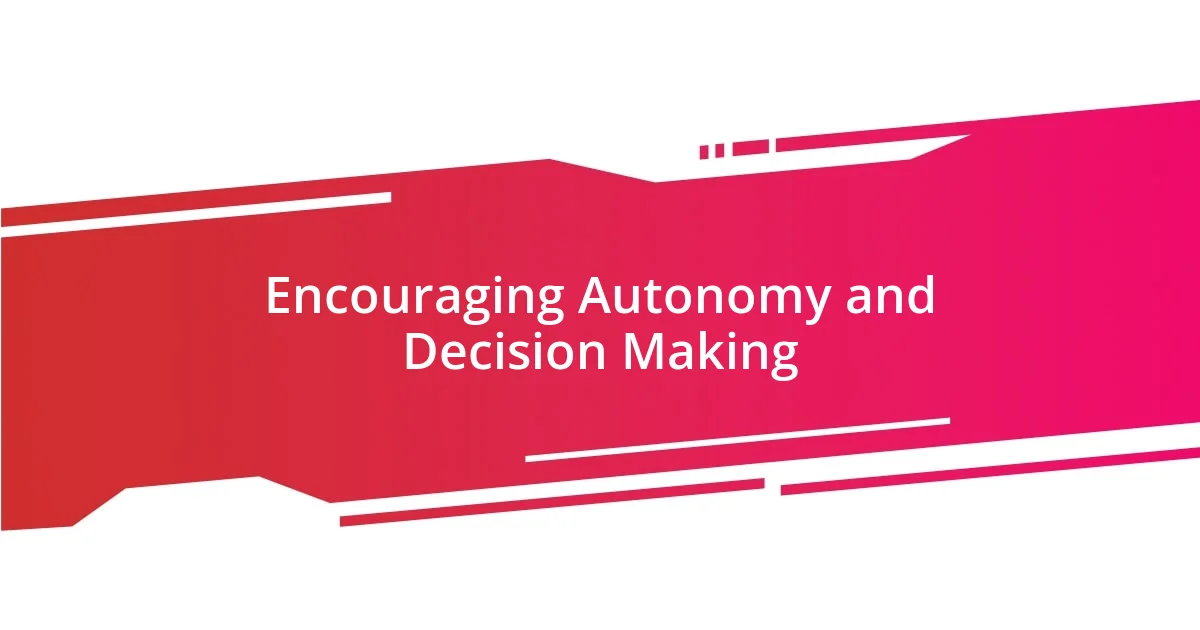
Encouraging Autonomy and Decision Making
Encouraging autonomy in the workplace can be incredibly transformative. I remember one instance where I was hesitant to let my support staff make decisions on a critical project, fearing they might not align with my vision. However, when I finally took a step back and empowered them to handle their segments, not only did they exceed my expectations, but they also found creative solutions that I hadn’t even considered. Isn’t it amazing what happens when we trust our team?
To foster a culture of autonomy, I started to involve my support staff in the decision-making process. This meant asking for their input during planning sessions and genuinely considering their ideas. I recall one brainstorming meeting where the quietest member of my team suggested a bold strategy. Initially unsure, I encouraged him to lead the discussion on how we could implement it. Seeing him grow in confidence as the team rallied behind his proposal was a turning point for me. It made me reflect: how often do we overlook the brilliance in our teams simply because we’re too quick to speak?
Moreover, celebrating small successes helped reinforce this autonomy. After my staff took ownership of a project, we held a recognition ceremony to highlight their contributions. It was heartwarming to see their faces light up as colleagues applauded their efforts. This not only boosted morale but also solidified their commitment to taking initiative in future tasks. Empowering others to make decisions cultivates an environment where everyone feels valued and motivated. Can’t you see how that ripple effect can lead to a thriving, dynamic workplace?
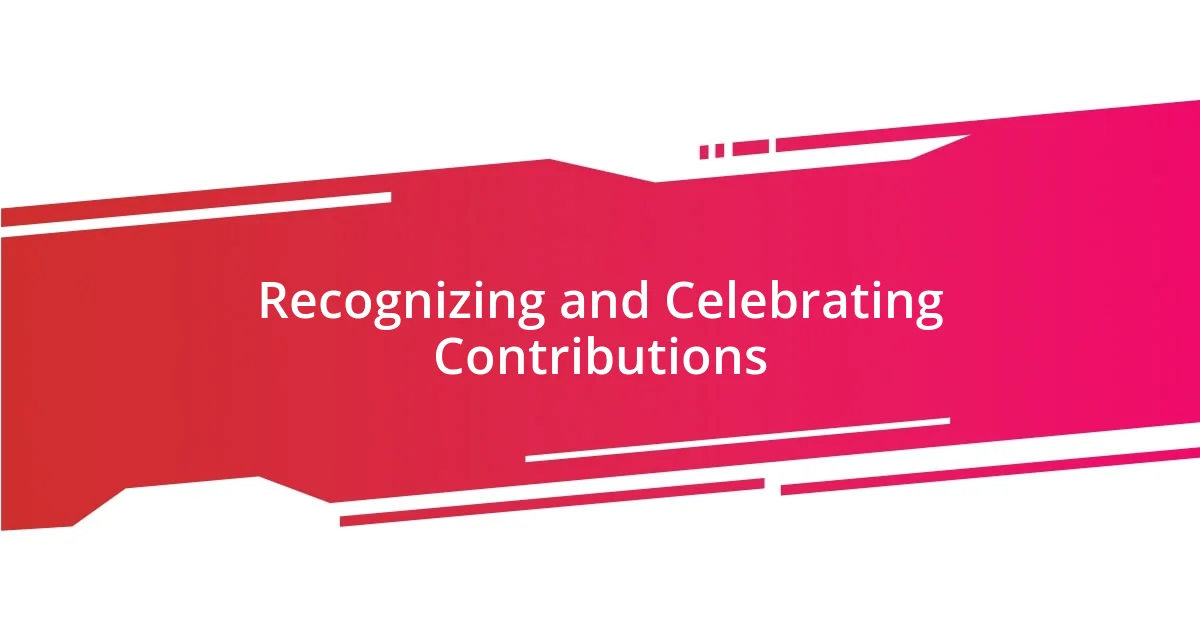
Recognizing and Celebrating Contributions
Recognition and celebration can truly be the heartbeats of a motivated support staff. I recall an event where I surprised the team with a small but meaningful celebrations day, complete with certificates and shout-outs for their hard work. The expressions of disbelief and joy I saw that day were priceless. There’s something inherently uplifting about recognizing someone’s effort; it makes them feel seen and appreciated, doesn’t it?
One memorable instance stands out: after a particularly challenging project, I decided to spotlight an individual who had gone above and beyond. During our team meeting, I shared his contributions and how they significantly impacted our success. The subsequent applause felt electric, and the look of surprise mixed with pride on his face was worth every bit of effort. It was a gentle reminder that sometimes, all it takes to uplift someone is to acknowledge their unique strengths. I always think about how often we let milestones slip by unnoticed—why not change that and make recognition a regular practice?
Moreover, I’ve found that incorporating fun into acknowledgments can create lasting memories. A “Kudos Board” became popular in our office, where team members could post notes of appreciation to each other. I remember the laughter and camaraderie that developed as we read those little notes during team lunches. It not only strengthened relationships but also fostered a culture of gratitude. Isn’t it amazing how something as simple as a note can create a sense of belonging and motivation?
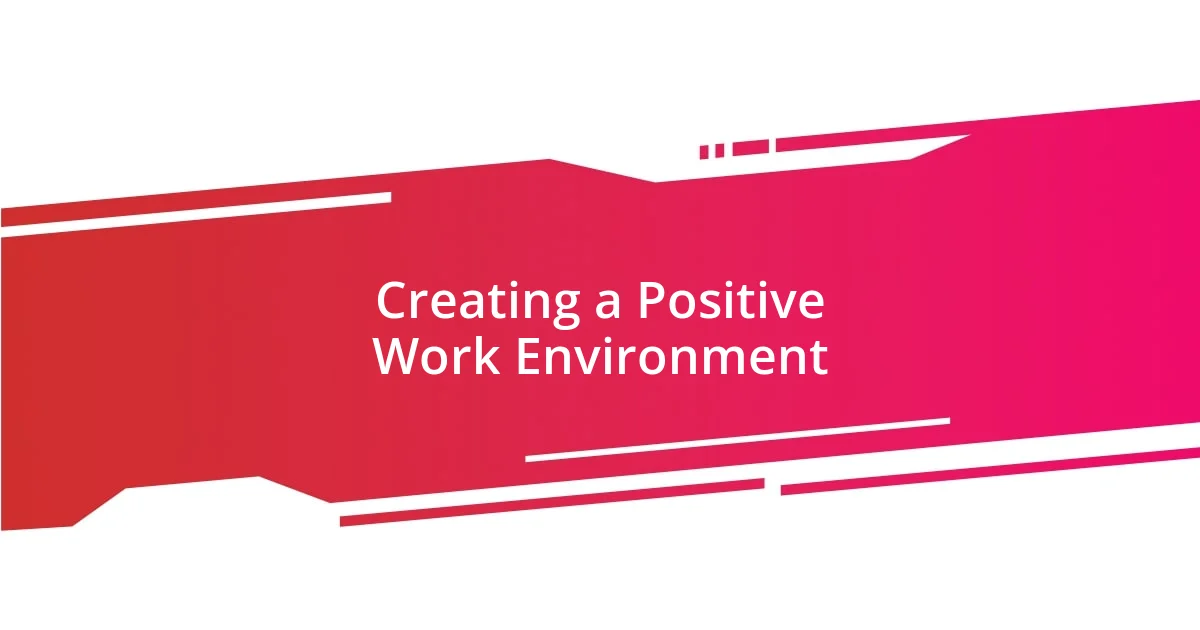
Creating a Positive Work Environment
Creating a positive work environment requires intentional effort and a genuine commitment to your team’s well-being. I remember a time when I initiated “Wellness Wednesdays,” where we took a break to discuss not just work but also share personal stories or challenges. This shift brought us closer as a team, creating a supportive space where laughter and encouragement flowed freely. I can’t help but think: how often do we neglect the human side of our coworkers?
Another key aspect is maintaining open lines of communication. During one of our regular check-ins, I encouraged everyone to voice their thoughts on the team’s dynamics. To my surprise, it sparked an honest conversation that revealed underlying issues affecting morale. I was humbled to hear how my support staff felt about their roles. Sometimes, just lending an ear can unveil profound insights and drive positive change.
Investing in team-building activities also plays a significant role. We organized a retreat that focused on collaboration and trust-building exercises. Watching my team bond over challenges, like escaping an outdoor escape room, was immensely rewarding. It’s often these shared experiences that forge deep connections—making the workplace not just a job but a community. Don’t you think that having a sense of belonging can dramatically change our motivation and productivity at work?
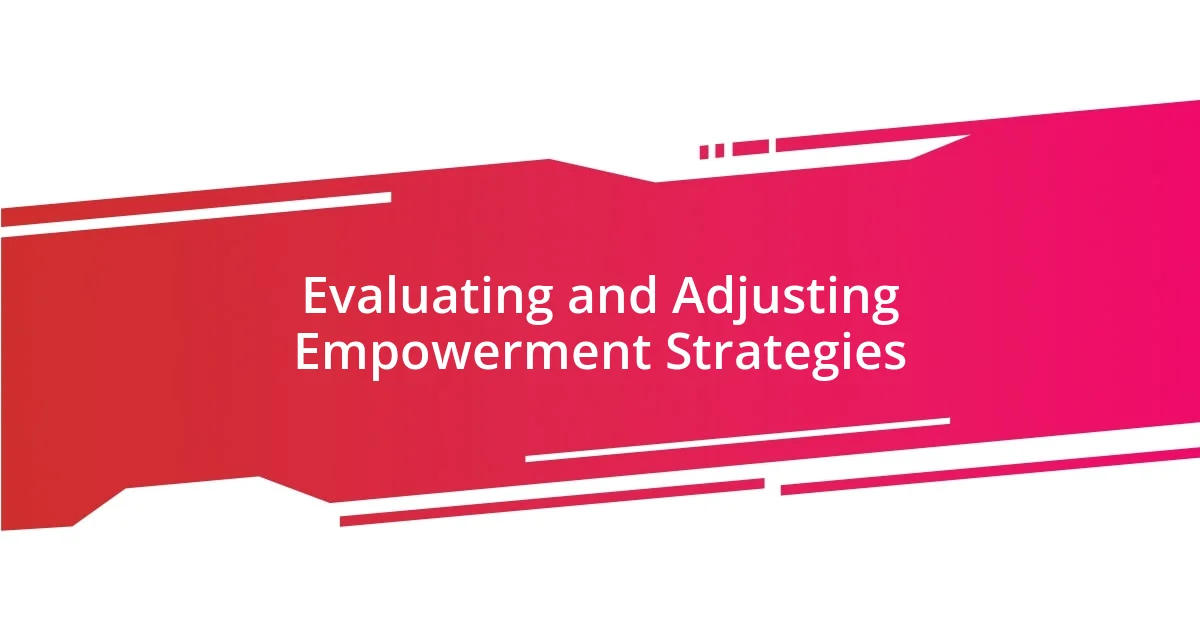
Evaluating and Adjusting Empowerment Strategies
When it comes to evaluating and adjusting empowerment strategies, I believe it’s essential to gather feedback regularly. I once implemented a confidential survey asking my support staff what they felt about their roles and the empowerment initiatives I had introduced. The candid responses were eye-opening. They highlighted not just what was working but also areas that needed tweaking. Isn’t it fascinating how feedback can open doors to understanding?
As I reviewed the survey results, I realized that although my original intention behind flexible work hours was to enhance work-life balance, it didn’t quite resonate with everyone. Some team members felt overwhelmed and preferred a more structured schedule. Adjusting this strategy based on their preferences not only increased productivity but also showed that I genuinely valued their input. This experience made me reflect: how often do we assume we know what our teams need without actually asking them?
Furthermore, I remember hosting a monthly empowerment discussion where we collectively brainstormed new ideas to enhance our work environment. One suggestion that arose was the need for more professional development opportunities. I took that to heart and started integrating training sessions tailored to their interests and career goals. Watching my team engage with enthusiasm in these sessions was uplifting. It reinforced my belief that empowerment isn’t a one-size-fits-all approach; it’s about being fluid and responsive to the unique dynamics of your team, wouldn’t you agree?










